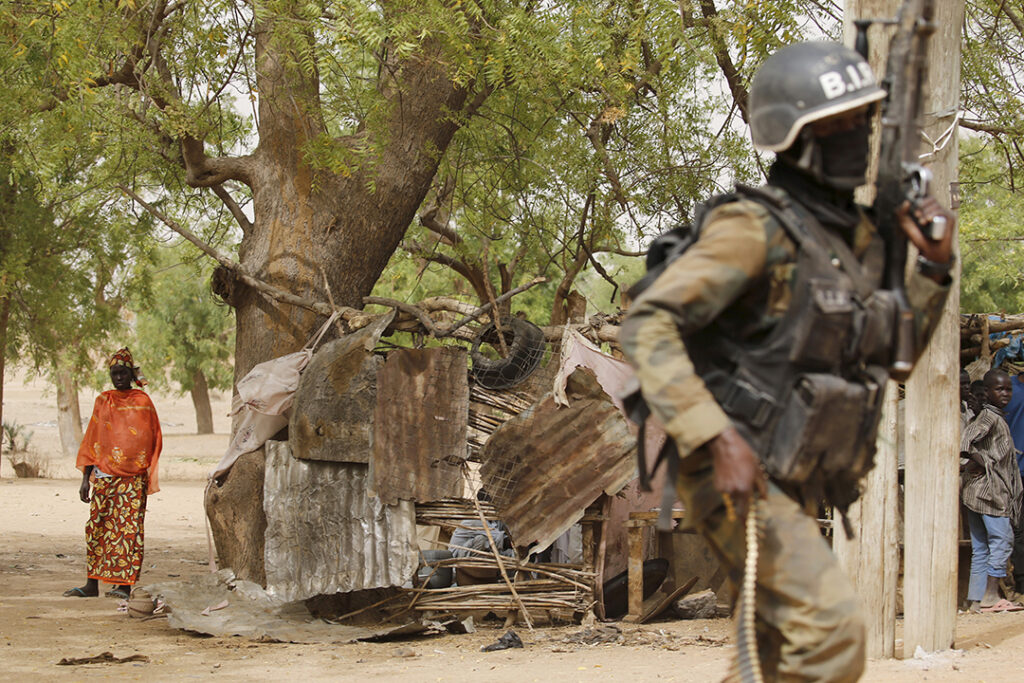ADF STAFF
Pressured by anti-militant campaigns in Nigeria, Boko Haram fighters have stepped up their attacks in Cameroon’s Far North region using improvised explosive devices (IEDs). The attacks target military vehicles, but also put civilians at risk.
Since the beginning of the year, Boko Haram terrorists have launched attacks against dozens of communities in the Far North using IEDs and direct attacks. Militants have burned villages and looted residents’ homes. More than 4,000 people have fled.
The Far North is part of the Lake Chad region, which has experienced a surge in terrorist violence in recent months. Much of that violence originates in Nigeria’s northeastern Borno State, which is the birthplace of Boko Haram.
As the Nigerian military and the Multinational Joint Task Force have increased pressure on Boko Haram through successful counterterrorism missions, Boko Haram has shifted across the porous border into neighboring regions of Cameroon.
Officials have reported attacks in the Mayo-Tsanag, Mayo-Sava and Logone-et-Chari regions of the Far North.
The change has ended a two-year lull during which the Far North experienced no IED attacks. Until this year, the Far North’s last major bomb attack was in January 2021 in Mozogo.
Experts believe Borno State remains the source of the IEDs exploding in Cameroon. Some of the IEDs detonating in the Far North might have been intended to disrupt Nigeria’s elections but were repurposed thanks to heightened Nigerian security.
Cameroon’s Rapid Intervention Battalion (BIR) has responded to renewed attacks against civilians even as militants have found ways to evade the BIR and attack unprotected communities.
In March of this year, a BIR vehicle hit an IED in Amchidé, killing one Soldier and injuring six others.
The BIR has reported disrupting plans to plant more IEDs in communities. It also has freed nearly two dozen Boko Haram hostages.
Residents of the Longone-et-Chari region in northern Cameroon have borne the brunt of recent IED attacks after military leaders withdrew two units that had been protecting the region.
“Since these posts were removed, attacks have multiplied in the area,” resident Herale Assa told HumAngle. “Other neighboring villages have moved to the headquarters of Logone-and-Chari due to these attacks. They have all lost their goods, so they are forced to move.”
Local leaders in the Far North have urged residents and security personnel to be alert for potential terrorists. However, more concrete action is needed, according to analyst Célestin Delanga.
Cameroon has limited experience with mines and mine clearing, making it crucial for authorities to work with their neighbors in Nigeria to identify and defend against potential IEDs, Delanga wrote recently for the Institute for Security Studies.
“Intelligence and sweeping operations must be stepped up and sustained to deter bombers and their accomplices and to weaken the supply chain for the raw materials used to manufacture bombs,” Delanga wrote. “The fight against IEDs must be a critical part of the broader strategy to prevent and address violent extremism.”

